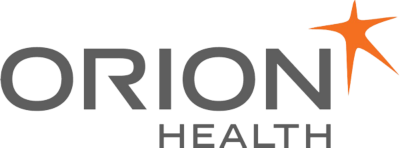Orion Health has a passion for unlocking data from silos, giving people access to their health data, and applying the power of AI to large-scale, healthcare-specific datasets. Orion Health’s Unified Healthcare Platform is a first-of-its-kind suite of products that unifies personal, public, and healthcare-specific data. This industry-leading technology is secure, interoperable, compliant, and scalable—and the only unified healthcare platform exclusively built for the healthcare industry.
But when it came to its own financial data, Orion Health lacked the same capabilities. For the finance team, manual consolidation across different subsidiaries and currencies made creating every budget, reforecast, or model a slow and painful process. The company also lacked transparency in much of its financial information. “It was impossible to report and forecast revenue by customers or expense by vendor,” explains Financial Planning and Analysis Manager Yue Qiu.
To gain real-time insights and use predictive analytics within its own organization, Orion Health selected Workday Adaptive Planning for its sophisticated reporting functionality and powerful ability to consolidate and connect source data.
Robust, granular reporting in a fraction of the time.
Now that the finance team is using Workday Adaptive Planning for month-end reporting, quarterly reforecasting, and annual budgeting, months of FTE time have been freed up. The automation in Workday Adaptive Planning means the annual budgeting cycle time for the consolidated group has been accelerated by 30 business days—and month-end reporting by 5 days. Qiu says FP&A has been able to go from 3 to 2 FTEs working holistically. “OfficeConnect is more flexible than Excel, and you get the best of both Workday Adaptive Planning and Excel for reporting purposes,” Qiu says.
In addition to increased efficiency in the finance function, the business has benefited from a clear uplift in the granularity and quality of reporting. “The ability to automate and consolidate across multiple subsidiaries and currencies has improved the accuracy and transparency of financial data,” notes Qiu.
Integrating Workday Adaptive Planning with all business systems means that budgeting and forecasting is now based on more detailed and up-to-date people information. “Plus, we can plan expenses down to the lowest level by vendor,” Qiu adds.
Cashflow management improvements have also ensued because people have access to near-real-time information on which invoices have been issued or paid, and can see a consolidated group view of invoicing and collection as actual vs. budget/forecast.
Workday Adaptive Planning has certainly made financial reporting, modeling, budgeting, and reforecasting a lot easier, faster, and more accurate.
Financial Planning and Analysis Manager
Finance becomes a better business partner.
The FP&A team is using its extra time to great effect. Rather than focusing mainly on past events, the team is making huge leaps forward in forecasting. “We have access to new future-facing information, including contracted revenue and likely revenue driven by sales opportunities,” says Qiu. As a result, regular financial forecasts have become a feature of Orion Health’s strategic planning process—a first for the company.
Qiu has noticed that finance now spends more time collaborating with commercial, regional, R&D, and corporate leaders, who have become far more involved in the budgeting and reforecasting process. Qiu notes that transparency leads to greater accountability, saying, “Finance has been able to make budget owners responsible for their numbers, and the business is increasingly using data to inform decisions.”
With data at their fingertips, business users are finding they have more time to focus on closing out sales and delivering solutions to customers.
Financial Planning and Analysis Manager
Scenario planning and modeling in BAU.
During the pandemic, Qiu discovered the benefits of being able to compare multiple what-if scenarios. “It was February 2020, we were in the middle of the budget process for FY21, and we needed very quick scenario planning to assess COVID-19 impact to the business,” Qiu recalls. “Using Workday Adaptive Planning, I was able to explore different possibilities in a short time frame, and gave the business important information to help with decision-making.”
Even during business as usual, the ability to see the financial impact of decisions continues to be a bonus. “The CEO and CFO might ask me, ‘What if we hire another five people here? What would that look like?’ On the spot I can refresh the report and show them what impact that will have on the bottom line,” explains Qiu.
Beyond this, Qiu says FP&A has created increasingly complex, in-depth models. “We used Workday Adaptive Planning to model how we would recognize revenue under IFRS 15. It was complicated because we had to split revenue by different types to model them differently.”
The data from Workday Adaptive Planning is proving hugely valuable. Just as its customers are using data to reimagine how they deliver care, Orion Health is using it to plan, think, and strategize in powerful new ways.
Our CEO and CFO are using information from Workday Adaptive Planning as they consider hiring, pay rise percentages, which revenue opportunities to chase, and the timing of projects and investment in R&D
Financial Planning and Analysis Manager

